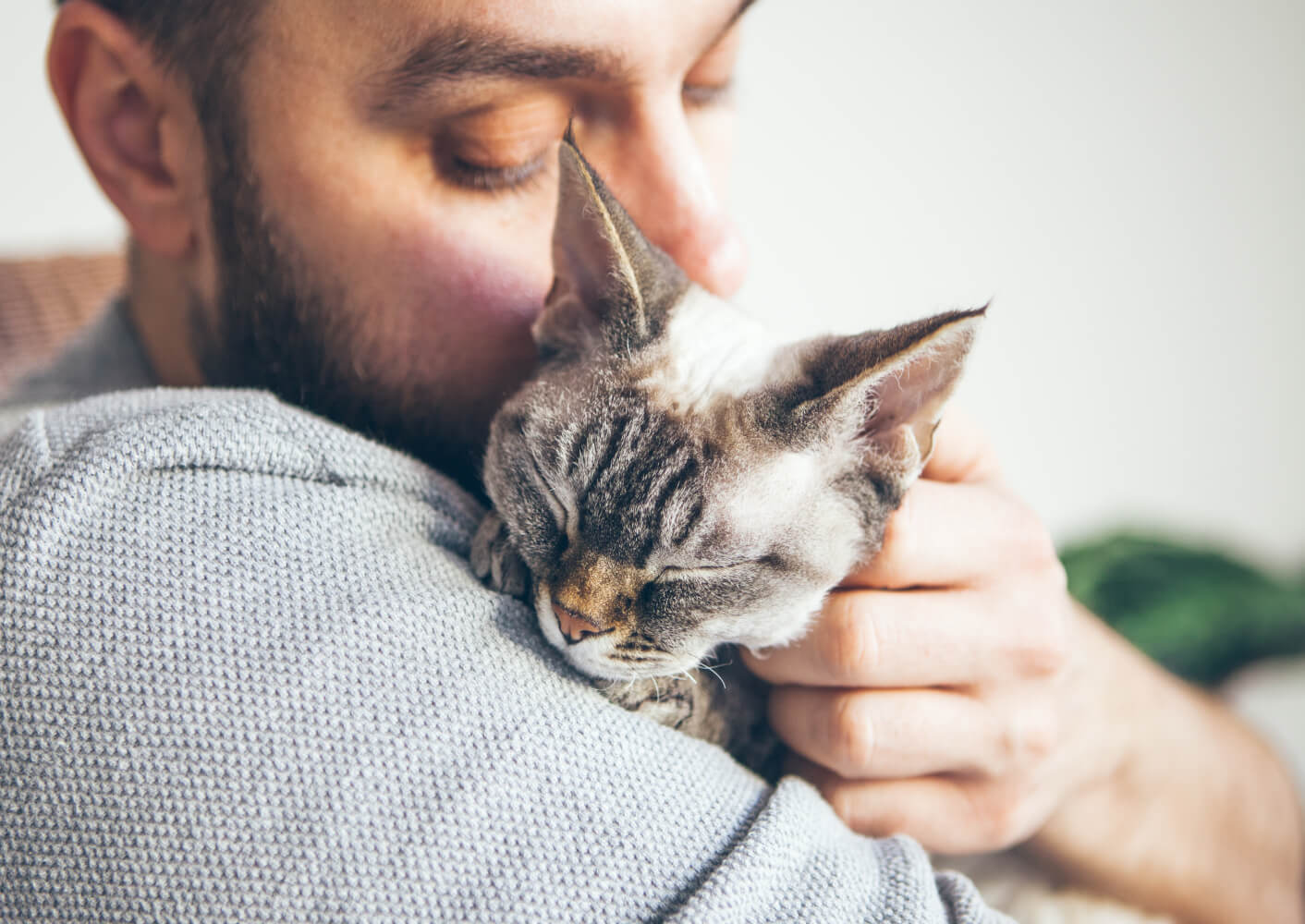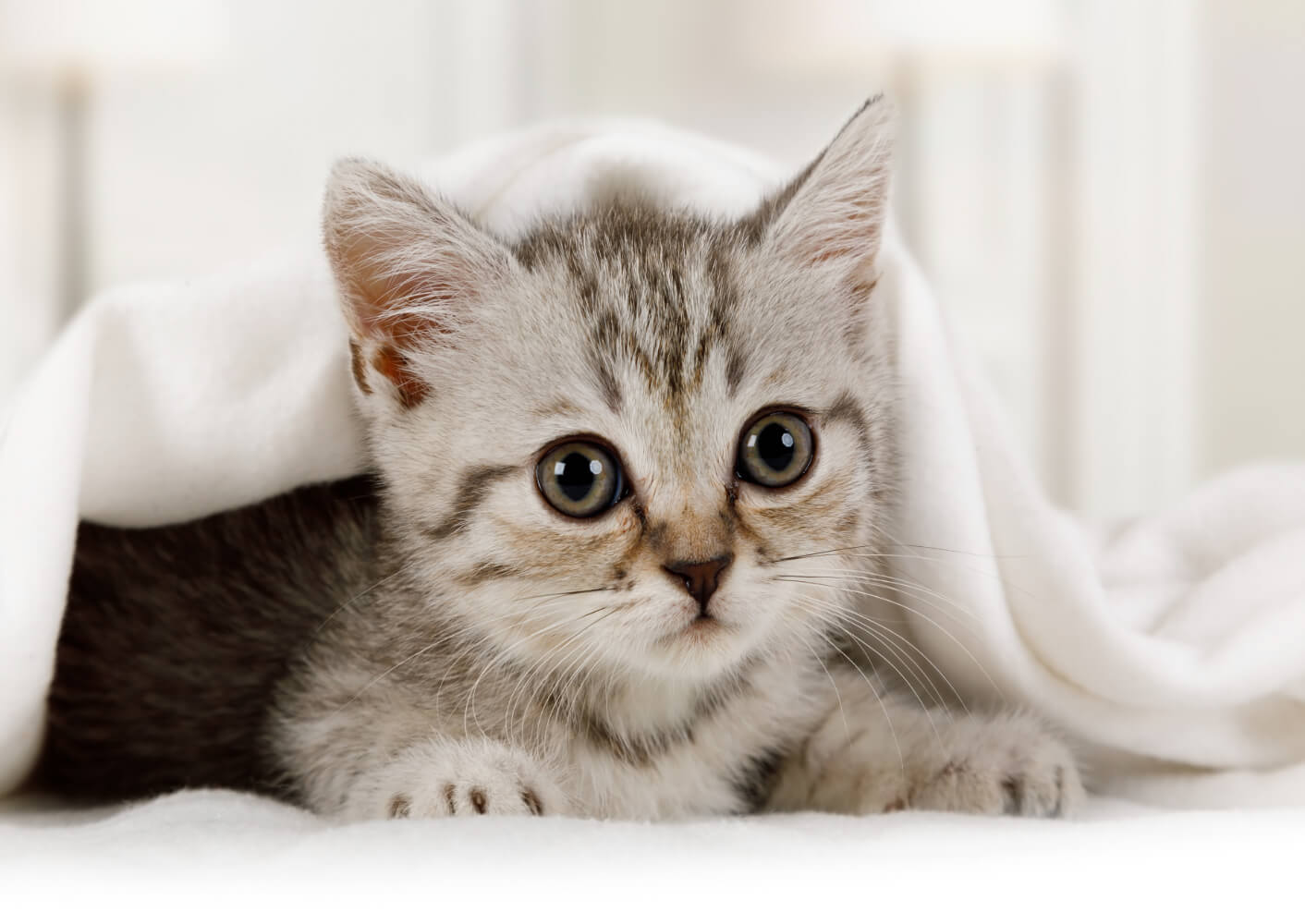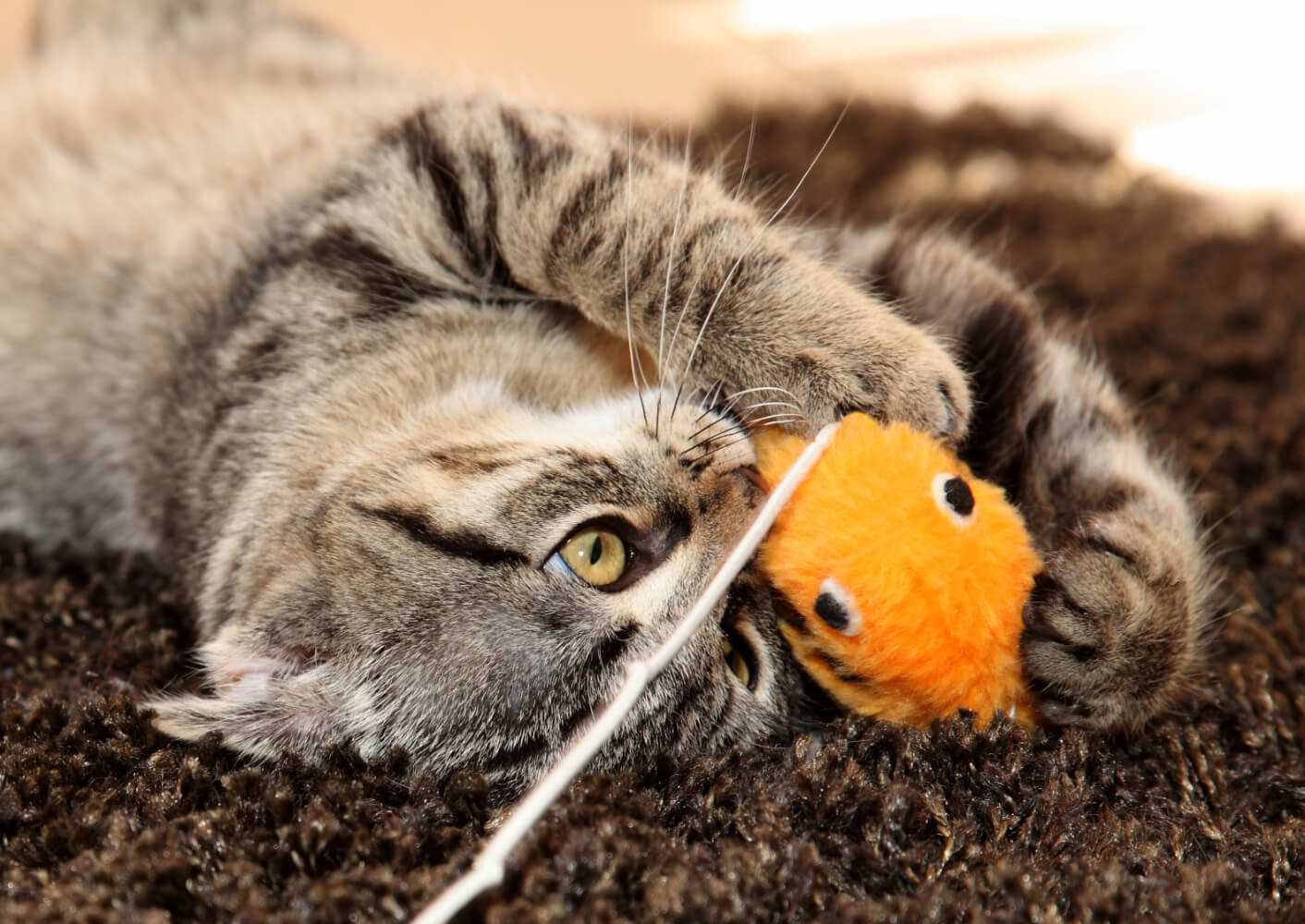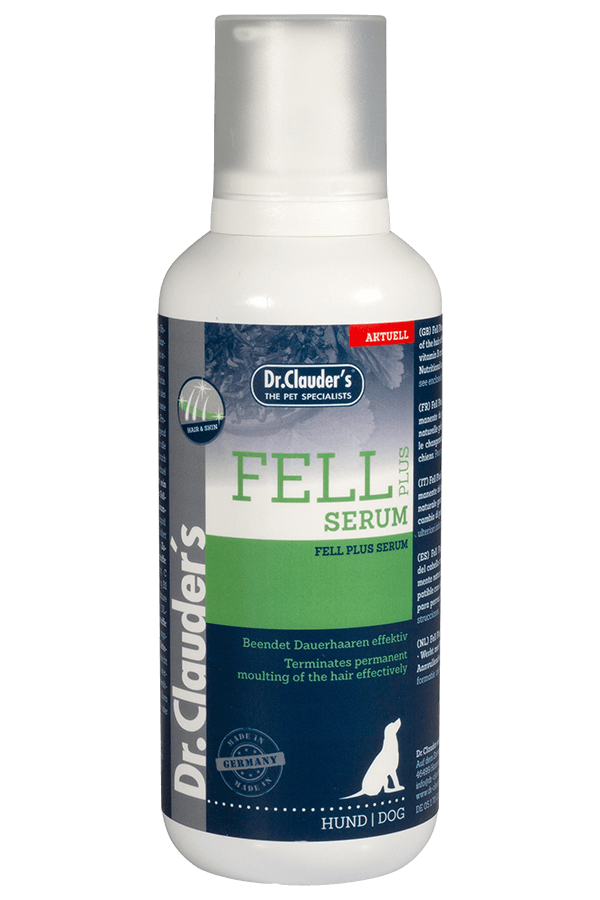Included in this article:
- Function of the immune system
- Weak immune system
- Tips for a strong immune system
- Vaccination calendar
- Points to note
- Product tips
A strong immune system in cats - the best protection against diseases

Do you suspect that your cat's immune system is weak? Symptoms such as recurrent colds or fungal infections may be indicative of this. Just like with us humans, the immune system of velvet paws can be weakened for various reasons. Overweight, too little rest and sleep, lack of nutrients, but also injuries, illnesses and taking medication are just a few factors that can have a negative effect on the immune system of our pets. Especially old cats, whose immune system is generally weaker, and kittens, whose immune system is not yet completely built up, can therefore make good use of support. But healthy cats also benefit from various supplements that strengthen the immune system.
Would you like to know how your cat's immune system works, what weakens the immune system, what consequences this can have, how you can strengthen your cat's immune system and which vaccinations are important? Then you should read on now.
How does the cat's immune system work?
The cat's immune system serves as a protective shield against bacteria and viruses and is based on a complex interaction of different body cells, messenger substances, tissues and organs. Humans as well as animals come into contact with a multitude of pathogens every day. Most of them are kept in check by our immune defence system. Two different defence systems can be distinguished from each other:
- The non-specific defence
The first stage of the immune defence consists of the so-called anatomical barrier of skin, mucous membrane, hair, gastric juices and ciliated epithelium. The skin is the largest protective organ that prevents pathogens from directly entering the body. If a pathogen manages to enter the body despite the barrier (for example, via a wound), it encounters phagocytes that fight everything that is classified as foreign and threatening to the body. In doing so, they surround the intruder and break it down without differentiating between types of pathogens (non-specific defence). - The specific defence
In contrast to the non-specific defence, the cat organism is also capable of analysing pathogens. In doing so, it determines the type of pathogen and can fight it with targeted measures. Thanks to the immunological memory, the organism remembers the pathogen as well as the strategy to fight it. The principle of "intelligent immune defence" also underlies vaccinations.

Reasons for a weakened immune system in cats
A weakened immune system makes it easier for pathogens to enter the body. What factors can weaken your cat's defences?
Age: Your cat's ageing process is accompanied by an ageing immune system - not all processes run as smoothly now as they did when your cat was younger. Age-related diseases such as osteoarthritis demand all the strength from the stressed immune system, making it easy for unwanted invaders such as viruses and bacteria.
Illness, injury/surgery and other body reactions (e.g. to medication): Wrong food, allergies, diarrhoea, vomiting - all bodily reactions that strain the organism weaken the immune system. Please always seek medical advice in such cases! Chronic illnesses (e.g. of the kidneys), injuries or inflammations also demand a lot from the immune system. Intestinal parasites are especially hard on young cats.
Stress: Stress hormones considerably impair the immune defence. Sensitive cats usually react fearfully to changes. The most stressful situations for our velvet paws include: Moving house, changes in the household (new housemates), territorial fights, travelling, going to the vet.
Weather: The organism regulates the body temperature, which puts a lot of strain on the circulation in extreme temperatures. Outdoor cats are particularly affected by this.
Coat change: The heavy strain on the metabolism weakens the immune system.
Overweight: Has a negative effect on various metabolic processes - also on the immune system.
Lack of exercise: Promotes poor circulation, which slows down the transport of messenger and defence substances.
Poor nutrition (nutrient deficiency): If the body lacks vital substances, this disrupts various regulatory circuits, inhibits cell production and natural barriers (skin / intestinal wall) become more permeable to pathogens as a result. Unhealthy feed can overload the organs or be metabolised into waste products that need to be removed.
Other factors:
- Poor intestinal flora
- Too little rest/sleep
What are the consequences of a weak immune system in cats?
A weakened immune system makes it easier for pathogens to enter the organism. Some cats then suffer more often than usual from gastrointestinal problems, colds, infections or allergies. Parasites such as mites, hair lice or worms also have an easy time and can harm your cat.
What is an allergy?
If your cat's body reacts with an extreme defence reaction when it comes into contact with a substance that is actually harmless, this indicates an overreaction of the immune system (allergy). Such a misinterpretation of the immune system can occur when an inflammation in an intestinal disease damages the intestinal wall.
The result: insufficiently digested food components pass from the intestine into the blood (leaky gut syndrome). Particularly insufficiently broken down proteins are often classified as intruders and fought against. The immune system "remembers" these intruders, which means that even after the disease has been cured and the intestinal barrier is intact again, defence reactions to the corresponding proteins can occur - this is how a feed allergy has developed.
The solution: Stabilise and retrain the intestinal flora.

Tips for a strong immune system
You can strengthen your cat's immune system with a few easy-to-implement tips:
- Regular exercise in the fresh air is the miracle weapon for an intact immune system. Even indoor cats can benefit from this by having secure access to the balcony or garden. Plan at least 30 minutes of playtime per day for your indoor cat.
- Extensive rest periods: Cats sleep up to 17 hours a day - provide a protected retreat for your cat.
- Balanced diet: Make sure your cat is getting all the nutrients he needs in sufficient quantities. Seek medical advice to optimise your pet's diet.
- Avoid stress: This includes providing a cat-friendly environment, suitable toilets, feeding areas, retreats and warm places to lie down, as well as company and variety for your cat.
- Careful parasite prophylaxis
- Regular preventive medical check-ups
- Support during the coat change (brushing, regular coat care)
A healthy intestinal flora, on the other hand, ensures that pathogens are reluctant to settle and thus cannot weaken the immune system. Therefore, a coordinated support is often helpful to activate useful intestinal bacteria. Fructooligosaccharides (FOS) can stimulate the formation of positive gut bacteria and thus promote effective digestion, feed conversion and well-being.
Vaccination calendar for your cat
You can protect your cat from many infectious diseases with regular vaccinations. Dangerous diseases such as feline epidemics are rarely diagnosed thanks to the positive vaccination behaviour of owners. This disease has a threatening course in kittens with a death rate of 75%.
Do you know which vaccinations are useful for your cat?
Your first port of call should be the vet's office when it comes to making a decision for or against vaccination. Vaccination is necessary - the vet should advise on the frequency. It is basically important that your cat is worm-free and healthy at the time of vaccination.
Basic immunisation:
- 8th - 9th week: feline epidemic diarrhoea, feline rhinitis, leucosis, chlamydia.
- 12th - 13th week: Feline epidemic, Feline rhinitis, Leucosis, Rabies, Chlamydia
- 26th - 20th week: FIP
- 20th - 24th week: FIP
- After one year: Feline epidemic diarrhoea, feline rhinitis, leucosis, rabies, FIP, chlamydia.
You should remember this
Dr.Clauder's for a strong immune system
Vulnerability, lack of vitality, lack of joie de vivre. These are problems that make life difficult for many cats. Often this can be countered with a targeted nutritional supplement.


